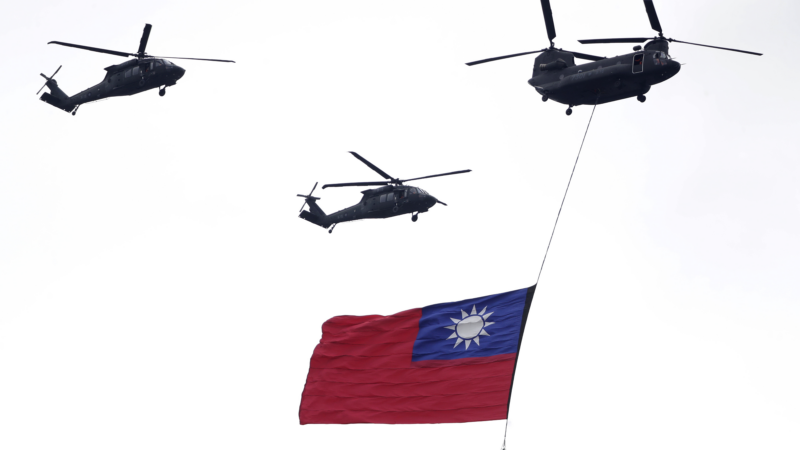Taiwan’s president pushes to increase defense budget amid rising threat from China
TAIPEI, Taiwan — Taiwanese President William Lai Ching-te said Thursday that the island’s defense budget will exceed 3% of its economic output as it overhauls its military in the face of the rising threat from China.
Along with the latest equipment — much of it from the United States, the military is seeking funds to retain more service people with higher pay and to lengthen compulsory national service from four months to one year.
In a speech Thursday to the American Chamber of Commerce, Lai said his administration is determined to “ensure that our defense budget exceeds 3% of the GDP. At the same time, we will continue to reform national defense.”
Lai’s comments were the latest reassurance to U.S. and domestic critics who say Taiwan is not spending enough on its own defense. The self-governing island, which relies on the U.S. for much of its cutting-edge weaponry, currently spends about 2.45% of its gross domestic product on its military.
U.S. President Donald Trump has demanded that Taiwan increase defense spending as high as 10% of GDP, a proportion well above what the U.S. or any of its major allies spend, in order to deter China.
China’s actions have also unsettled neighbors in the South China Sea and other parts of the Indo-Pacific.
Leaders in Australia and New Zealand have said China should have given them more warning before its navy conducted an unusual series of live fire exercises in the seas between the two countries last month, forcing flights to divert on short notice.
Lai said that Taiwan plans to “advance our cooperation with the U.S. and other democracies in upholding regional stability and prosperity.”
China considers the self-governing democracy of Taiwan as part of its own territory and has significantly boosted its military to make good on its threat to invade the island to assert its control.
Raymond Greene, the de-facto U.S. ambassador to Taiwan; Dan Silver, the chamber chairperson; and Alaska Gov. Mike Dunleavy attended the speech.
Taiwan and the U.S. have no formal diplomatic ties but American law requires Washington respond to threats toward the island.
New York Giants hire John Harbaugh as coach after identifying him as their top choice
Harbaugh joins the Giants 11 days after he was fired by the Baltimore Ravens. The Super Bowl champion is now tasked with turning around a beleaguered franchise.
US launches new retaliatory strike in Syria, killing leader tied to deadly Islamic State ambush
A third round of retaliatory strikes by the U.S. in Syria has resulted in the death of an Al-Qaeda-affiliated leader, said U.S. Central Command.
NASA rolls out Artemis II craft ahead of crewed lunar orbit
Mission Artemis plans to send Americans to the moon for the first time since the Nixon administration.
Trump says 8 EU countries to be charged 10% tariff for opposing US control of Greenland
In a post on social media, Trump said a 10% tariff will take effect on Feb. 1, and will climb to 25% on June 1 if a deal is not in place for the United States to purchase Greenland.
‘Not for sale’: massive protest in Copenhagen against Trump’s desire to acquire Greenland
Thousands of people rallied in Copenhagen to push back on President Trump's rhetoric that the U.S. should acquire Greenland.
Uganda’s longtime leader declared winner in disputed vote
Museveni claims victory in Uganda's contested election as opposition leader Bobi Wine goes into hiding amid chaos, violence and accusations of fraud.






